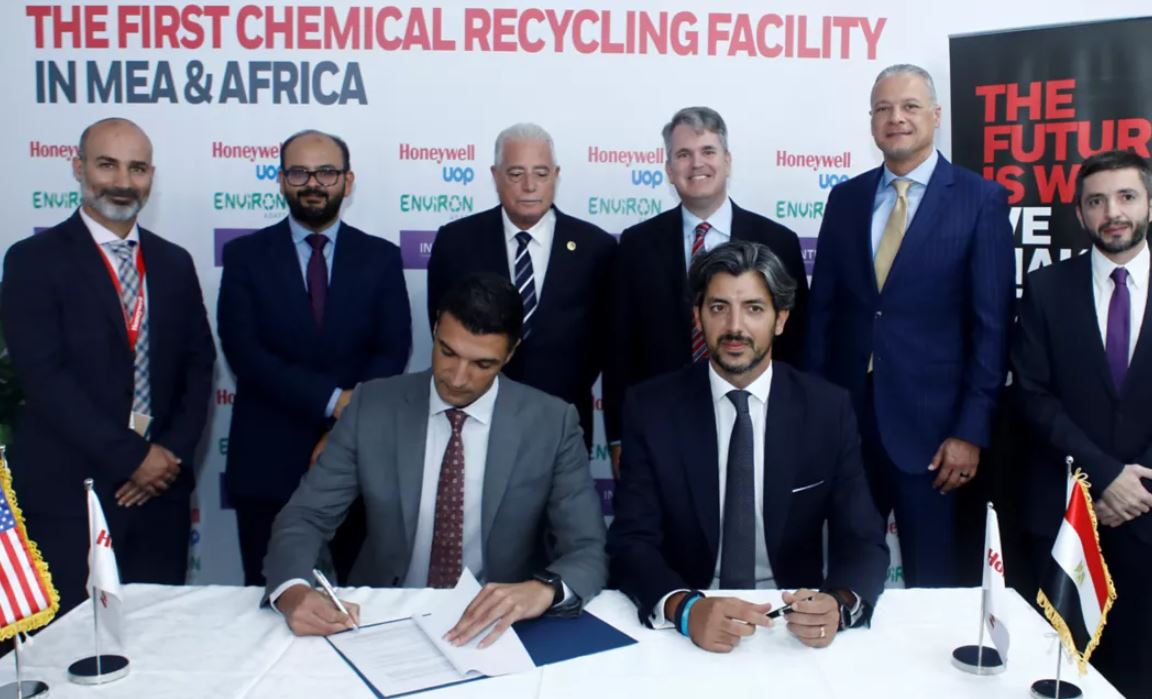Egypt – To advance plastics recycling in Egypt, Honeywell and Environ Adapt for Recycling Industries have signed a Memorandum of Understanding (MoU).
The two organizations will investigate building Egypt’s first chemical recycling factory, which would be outfitted with cutting-edge Honeywell technology and able to recover waste plastic into useful recycled polymer feedstock (RPF).
According to the plan outlined in the Memorandum of Understanding, Honeywell UOP will collaborate with Environ to implement its most recent UpCycle Process Technology, which, when combined with other mechanical, chemical, and recycling processes as well as advancements in collection and sorting, has the potential to help recycle up to 90% of waste plastics. This signifies a significant increase in the amount of waste plastic that may be used as feedstock for polymers.
The MoU gives Environ the authority to carry out a project feasibility study to investigate trends, feedstock availability, and prospective markets, as well as technical studies for the operation of the plant and facility, overall project timetable, financial modeling, and analysis.
Environ will receive technical and commercial information, analysis, and broader project assistance from Honeywell UOP concurrently.
Egypt’s Vision 2030
The agreement, which was made at the COP27 summit in Sharm El-Sheikh, Egypt, supports the goals of Egypt’s Vision 2030, a comprehensive long-term political, economic, and social vision created in accordance with the UN Sustainable Development Goals (SDGs).
Egypt has established a goal under Vision 2030 to reduce greenhouse gases (GHGs) from the energy sector, including oil and gas, by 10% from 2016 levels by 2030. Additionally, Egypt’s National Climate Change Strategy wants to invest US$10 billion to create 10 GW of renewables and renovate existing thermal power plants, with the goal of increasing the share of renewables in its energy mix to 42 percent by 2035.





